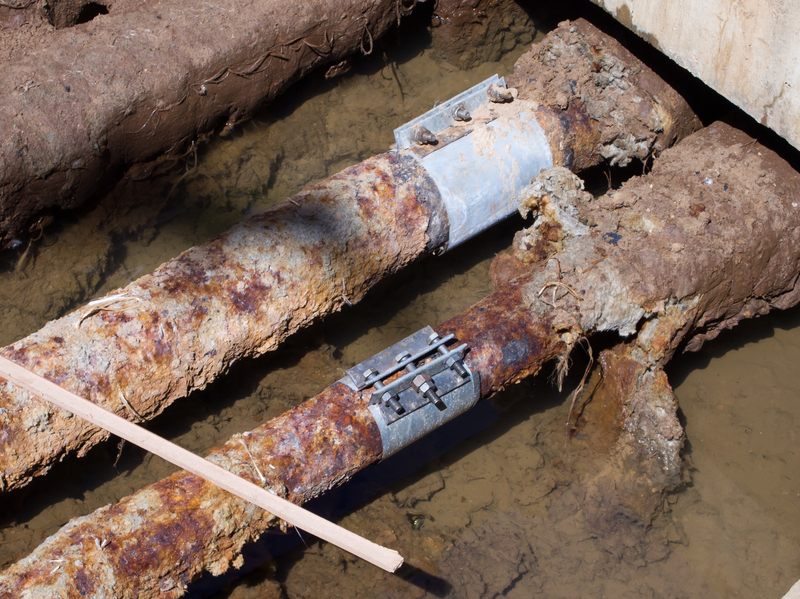Illinois Materials and Laws/Rules/Ethics/Sexual Harassment 30 PDH Discount Package 1
Courses in this Package
An Introduction to Tropical Engineering: Concrete, Wood and Metals (T03-005)
Corrosion Control for Aircraft (T09-001)
Lubricants and Hydraulic Fluids - Handling (T06-004)
Pre-Coating Surface Preparation (T02-003)
Structures and Properties of Metals (T07-001)
Sexual Harassment Prevention for Illinois Professionals (IL1-001)
Engineering Laws, Rules, and Ethics for Illinois Professional Engineers (IL2-001)

This online engineering PDH course provides an introduction to the application of construction materials such as concrete, wood and metals in tropical climates where humidity, weather and seafront locations are considerations.
Concrete materials, reinforcement, accessories, curing, structural precast concrete, prestressed concrete, and cast-in-place concrete are discussed. Concrete masonry units (CMU), both solid and hollow, used in general construction are included. Structural steel and metals of a generic nature are considered but not specific products. Wood construction covers rough carpentry, heavy construction timber, finish carpentry, plywood, wood treatments, prefabricated structural wood and its uses and prefabricated plastics. Rough hardware, particle board and treatment and use are also included.
This 3 PDH online course is intended for civil and structural engineers and other design and construction professionals seeking an introduction to the special challenges present in employment of concrete, metal and wood materials in facilities in tropical climates where heat, humidity and seafront conditions are important.
This PE continuing education course is intended to provide you with the following specific knowledge and skills:
-
Understanding the importance of minimizing the salt content of both the water and aggregates (especially coral) used in the concrete mix
-
Understanding how the density of aggregates affects concrete strength, cement and water content, workability, and porosity of the concrete, all of which indirectly influence steel corrosion
-
Understanding how air-entraining agents are used to improve workability of concrete
-
Learning about the precaution to be observed when using galvanized reinforcement
-
Understanding the significance of water infiltration of concrete masonry units in the tropics
-
Understanding why it is important to avoid corrosion of metals caused by galvanic action between two dissimilar metals
-
Learn how to base the selection of wood for exterior lumber and timber on strength and treatability
In this professional engineering CEU course, you need to review the course document titled, "An Introduction to Tropical Engineering".
Upon successful completion of the quiz, print your Certificate of Completion instantly. (Note: if you are paying by check or money order, you will be able to print it after we receive your payment.) For your convenience, we will also email it to you. Please note that you can log in to your account at any time to access and print your Certificate of Completion.

This online engineering PDH course provides information regarding the identification and treatment of corrosive attack on aircraft structures and engine materials.
Corrosion is the electrochemical deterioration of a metal because of its chemical reaction with a surrounding environment. While the aerospace industry is continuously developing new and better materials, progress is offset partly by a more aggressive operational environment and by the complexity of the corrosion phenomenon, which can take many different forms. The resistance of aircraft materials to corrosion can drastically change with only a small environmental change.
This 9 PDH online course is applicable to material, industrial and mechanical engineers, as well as aircraft operators, maintenance and repair personnel in addition to all others seeking a better understanding of the basics of corrosion in aircrafts.
This PE continuing education course is intended to provide you with the following specific knowledge and skills:
- Familiarizing with the factors that cause corrosion
- Understanding the effects of corrosion
- Knowing which areas are prone to corrosion and the methods of prevention
- Learning the requirements for inspecting aircraft
- Learning corrosion removal techniques
Upon successful completion of the quiz, print your Certificate of Completion instantly. (Note: if you are paying by check or money order, you will be able to print it after we receive your payment.) For your convenience, we will also email it to you. Please note that you can log in to your account at any time to access and print your Certificate of Completion.

This online engineering PDH course describes the basic principles of lubricant additives, filtration, monitoring and sampling, and oil handling procedures.
This course is intended to be a practical guide to lubrication with enough technical detail to allow personnel to recognize and easily discern differences in performance properties specified in manufacturers' product literature so that the proper lubricant for a particular application is selected. In addition, this course discusses the considerations required to adequately maintain the integrity of the lubricants and ensure their effective performance.
This 6 PDH online course is applicable to engineers, design and construction personnel, and other technical professionals who are interested in gaining a better understanding of lubricants.
This PE continuing education course is intended to provide you with the following specific knowledge and skills:
- Familiarizing with the basic principles, classifications, and functions of lubricant additives
- Understanding the different filtration and separation processes
- Learning about the process of oil monitoring, system sampling, and testing
- Familiarizing with the essentials of oil storage, handling, disposal and safety considerations
Upon successful completion of the quiz, print your Certificate of Completion instantly. (Note: if you are paying by check or money order, you will be able to print it after we receive your payment.) For your convenience, we will also email it to you. Please note that you can log in to your account at any time to access and print your Certificate of Completion.

This online engineering PDH course describes surface preparation standards, common methods of surface preparation, and abrasive type and selection methods.
Surface preparation is the key factor in determining the success of a protective coating system. The equipment and techniques that can be used to achieve the desired surface cleanliness and roughness (profile) vary considerably. Traditional methods of surface preparation are now accompanied by new, innovative methods that have evolved mainly because of the issues surrounding the safe removal of lead-containing coatings from industrial structures. The ultimate objective of surface preparation is to create proper adhesion of a coating over an underlying substrate.
This 2 PDH online course is applicable to engineers, design and construction personnel, and other technical professionals who are interested in gaining a better understanding of surface preparation prior to coating applications.
This PE continuing education course is intended to provide you with the following specific knowledge and skills:
- Common methods of surface preparation
- Abrasive type and selection
- Surface preparation standards and specifications
In this professional engineering CEU course, you need to review Chapter 7 of the "Painting: New Construction and Maintenance" engineering manual, published by the United States Army of Corps of Engineers (USACE), Publication Number EM 1110-2-3400.
Upon successful completion of the quiz, print your Certificate of Completion instantly. (Note: if you are paying by check or money order, you will be able to print it after we receive your payment.) For your convenience, we will also email it to you. Please note that you can log in to your account at any time to access and print your Certificate of Completion.

The online engineering PDH course addresses two aspects of metals. The first part of this course deals with the basic structures of metals and how those structures are affected by various processes. In addition, it contains information on the various imperfections and defects that the metal may sustain and how they affect the metal. The second part contains information on metal properties which are considered when selecting material for engineering design purposes. Each of these properties contains a discussion on how the property is affected and the metal's application.
This 7 PDH online course is applicable to structural and mechanical engineers, construction and design personnel, technical staff and facility operators who are interested in gaining a better understanding of the structures and properties of metals.
This PE continuing education course is intended to provide you with the following specific knowledge and skills:
- Understanding bonding
- Learning about common lattice types
- Understanding grain structure and boundary
- Learning about polymorphism and alloys
- Knowing the imperfection in metals
- Learning about stress and strain and Young's
- Modulus Understanding stress-strain relationship
- Understanding the physical properties of materials
- Learning about working metals and corrosion
- Understanding hydrogen embrittlement
In this professional engineering CEU course, you need to review Modules 1 and 2, "Structures and Property of Metals" of the Department of Energy Publication DOE-HDBK-1017/1-93, "Material Science".
Upon successful completion of the quiz, print your Certificate of Completion instantly. (Note: if you are paying by check or money order, you will be able to print it after we receive your payment.) For your convenience, we will also email it to you. Please note that you can log in to your account at any time to access and print your Certificate of Completion.

This online PDH course presents a training on sexual harassment prevention in order to adopt and actively implement policies that ensure that workplaces are safe for employees to report and express their concerns about sexual harassment.
The Illinois Human Rights Act makes it a civil rights violation “[f]or any employer, employee, agent of any employer, employment agency or labor organization to engage in sexual harassment.” 775 ILCS 5/2-102(D).
The Illinois General Assembly finds that tolerance of sexual harassment has a detrimental influence in workplaces by creating a hostile environment for employees, reducing productivity, and increasing legal liability. Therefore, every employer in the State of Illinois is required to provide employees with sexual harassment prevention training that complies with section 2-109 of the Illinois Human Rights Act (“IHRA”).
This 1 PDH online course is applicable to professionals licensed in the State of Illinois and who are required to demonstrate continuing professional competency in sexual harassment prevention training as a condition of their license renewal.
This PE continuing education course is intended to provide you with the following specific knowledge and skills:
- Gaining an overview of sexual harassment prevention consistent with the Illinois Human Rights Act
- Familiarizing with types of unlawful sexual harassment, unwelcome behavior and working environment
- Learning about examples of conduct that may constitute unlawful sexual harassment
- Understanding sexual harassment in online environments
- Understanding employer responsibilities in the prevention, investigation, and corrective measures on sexual harassment
- Familiarizing with the Federal and State statutory laws concerning sexual harassment including remedies available to victims
Upon successful completion of the quiz, print your Certificate of Completion instantly. (Note: if you are paying by check or money order, you will be able to print it after we receive your payment.) For your convenience, we will also email it to you. Please note that you can log in to your account at any time to access and print your Certificate of Completion.

This online engineering PDH course presents the laws and rules of ethics and professional responsibility governing the practice of engineering in the State of Illinois.
Engineering ethics is (1) the study of moral issues and decisions confronting individuals and organizations involved in engineering and (2) the study of related questions about moral conduct, character, ideals and relationships of peoples and organizations involved in technological development (Martin and Schinzinger, Ethics in Engineering).
Excerpts from the Professional Engineering Practice Act of 1989, 225 ILCS 325 and the Illinois Administrative Code, Part 1380, which relate to the rules of profession conduct, continuing education requirements, proper use of seal and other pertinent regulatory provisions are presented in this course.
This 2 PDH online course is applicable to Professional Engineers licensed in the State of Illinois who are required to demonstrate continuing professional competency in the Illinois Laws, Rules and Ethics as a condition of license renewal. For each renewal period, every licensee must complete thirty (30) professional development hours, at least one (1) of the 30 hours must be in professional ethics and one (1) of the 30 hours must be in the laws and rules regulating the practice of engineering in the State of Illinois.
This PE continuing education course is intended to provide you with the following specific knowledge and skills:
- Familiarizing with the laws and rules regulating the practice of engineering in the State of Illinois
- Learning about engineering ethics, the rules of professional conduct and responsibility
- Understanding the role of the Illinois Board and its disciplinary authority
- Understanding the continuing education requirements in the State of Illinois
- Gaining an overview of disciplinary cases, violations and their corresponding penalties imposed by the Illinois Board
Upon successful completion of the quiz, print your Certificate of Completion instantly. (Note: if you are paying by check or money order, you will be able to print it after we receive your payment.) For your convenience, we will also email it to you. Please note that you can log in to your account at any time to access and print your Certificate of Completion.